Insights

Sub-concussive impacts in sport: a consideration of the current landscape
There is clear evidence that contact sports such as Australian Rules Football can lead to serious brain injury, leaving players with life-changing, and potentially catastrophic consequences. Most recently, we have seen class action proceedings instituted against the Australian Football League, as well as individual court actions such as that by former Australian Football League Women Collingwood vice-captain Emma Grant...

Greg Dickason, Managing Director Asia and Pacific, LexisNexis®︎ Bidding on an NFT
So, the LexisNexis practical guidance team has published the NFT on 'How to create an NFT'. As a nerdy CEO, I was of course keen to both follow the process of how we create the NFT, including all the internal hoops to navigate, as well as then to bid on the NFT once it was up for Auction. To find out about the hoops and the complexity of a multinational company interacting with the blockchain and digital assets, read...

AI and the modern law firm: selecting the right tech
This is the first article in the future-proofing your firm for growth series. Technology has long been part of what it means to practice law, with document automation, practice management systems, and computer-aided legal research part of lawyers’ day-to-day for decades. You could even argue that looseleaf services were an early form of legal tech – solving the problem of how to keep hardcopy legal content up to date...

AI for Growth: Harnessing the Power of Large Language Models in the Legal Industry
Evolution of Large Language Models There’s no doubt that AI is here. The surge in interest that has arisen from the introduction of new generative tools like ChatGPT or Google’s Bard is unlike anything we’ve seen for a long time. But the truth is that AI has been here for years – and even the Large Language Models that are now causing such excitement are actually already years old. The new wave of generative tools...

Moving towards a future-ready enterprise: Practical tips for AI implementation
You can’t scroll through LinkedIn without reading posts about the ‘5 things you need to know about generative AI’. Every second podcast in your feed now seems to relate to AI regulation and the risks and benefits of using generative AI. You have even prompted Stable Diffusion to create some outlandish images and asked ChatGPT to write your best man’s speech. You read some pieces written by technology thought leaders and...
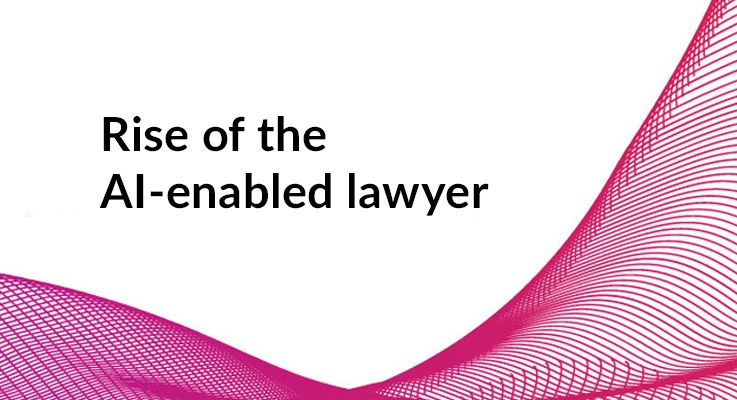
Rise of the AI-enabled lawyer
This is the second article in the series Future-proofing your firm for growth. The legal profession has seen a gradual but significant transformation for several years. From increasing efficiencies and reducing the amount of unbillable time to becoming more client-centric, law firms have slowly yet steadily moved towards adopting newer and more data-driven techniques to shape firm growth. Responsibly embracing AI...

Getting ready for the NSW mandatory notification of data breaches scheme and other new privacy reforms
NSW privacy reforms NSW has recently ushered in a number of significant privacy reforms through the passing of the Privacy and Personal Information Protection Amendment Act 2022 (NSW) (Amending Act). As part of these reforms, the NSW Government has followed the Commonwealth and introduced a scheme for the mandatory notification of eligible data breaches (MNDB) scheme. The MNDB scheme will apply to NSW public sector...

No mercy for fossil fools: ASIC pulls no punches on greenwashing conduct
In response to growing consumer and investor concerns about environmental issues, the demand for “green” financial products and services has significantly increased in recent years. However, this trend is also accompanied by the growing risk of unsavoury conduct by some marketers and producers. An example of such misconduct is the practice of “greenwashing” by corporations. Greenwashing, in relation to investments, refers...

The Attorney-General’s review proposed changes to children’s privacy: no longer child’s play!
After a long time in hibernation (ie since the Children’s Online Privacy Protection Act (US) (COPPA) was passed in 1998), children’s privacy in relation to online activities and social media has re-emerged as a significant issue. This has been fuelled by the recent announcement of the UK privacy regulator that they are investigating (and will likely take action) against TikTok for infringing children’s privacy. Of course...

Class Action confusion: access to justice in the face of regulatory change
Class actions are now a mainstay of the Australian litigation landscape. As of April 2023, there were 144 class action proceedings on foot across all registries of the Federal Court of Australia alone, not including the significant number of class actions on foot in each of the State Supreme Courts with their own regimes (including in Western Australia, whose dedicated regime commenced operation on 24 March 2023). For...

Data breaches usher in a new era for Australian class actions
Recent major data breaches in Australia, suffered by telecom operator Singtel Optus, health insurer Medibank Private and financial services company Latitude Financial have led to a wave of class-action lawsuits exploring new ground in the country’s legal system. With no established playbook for class actions linked to cyberattacks in Australia, the success or failure of plaintiffs in convincing courts of their loss or...

Focusing attention on flexible work — Secure Jobs, Better Pay Act
Flexible work was firmly on the reform agenda of the Labor government. In the raft of reforms brought about by the enactment of the Secure Jobs, Better Pay Act, enacted in December 2022, flexible work is undergoing significant changes. This aspect of the reforms is operative from 6 June 2023. What reforms have been made to the Secure Jobs, Better Pay Act, and how does it provide protections to employees? What does the...
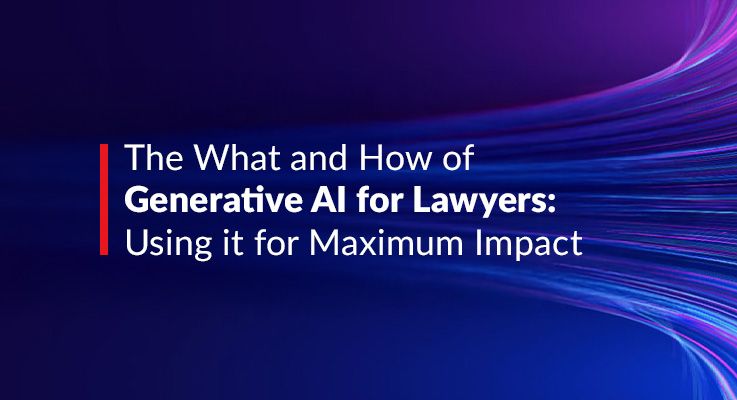
Generative AI for Lawyers: What It Is, How It Works, and Using It for Maximum Impact
What is Generative AI? Uses of Generative AI for Lawyers and Law Firms What to Look for When Selecting a Generative AI Tool Learn More about Generative AI Technology In late November 2022, the release of ChatGPT, a powerful generative artificial intelligence (AI) tool, sparked a global revolution, with the legal industry also experiencing its profound effects. In fact, the legal industry has since reported...
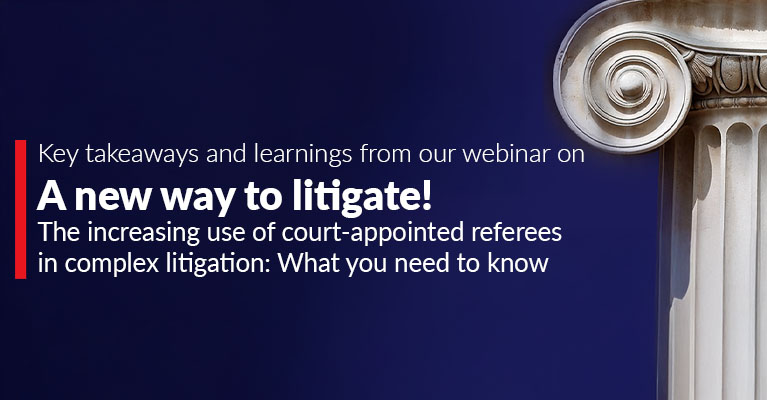
A new way to litigate: The increasing use of court-appointed referees in complex litigation
What are court-ordered references? A reference involves the court making an order to appoint a referee (or a panel of referees) to assist the court in determining questions of fact or law in dispute in a proceeding. A reference may be ordered at any stage of a proceeding and may be conducted as an interlocutory process (ie, for disputes about standing or discovery) in parallel with the substantive proceeding. Referees...
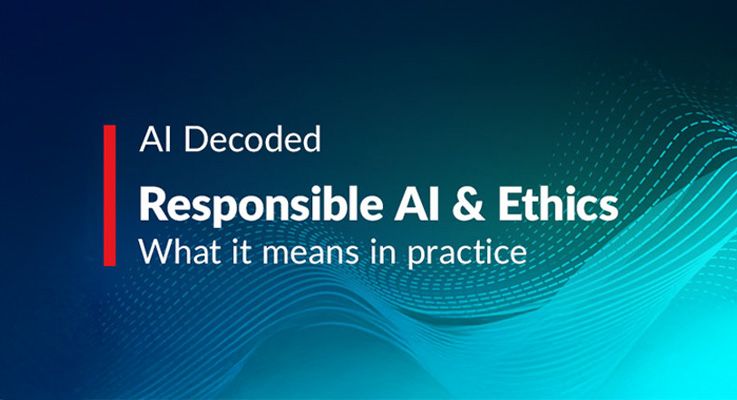
Responsible AI & Ethics
Linda Przhedetsky is an Associate Professor at the University of Technology Sydney’s Human Technology Institute. She’s a policymaker and PhD candidate specialising in the ethical development, regulation and use of artificial intelligence (AI), and her research focuses on the role of automated decision-making tools in competitive essential services markets and the development of effective regulatory solutions that prevent...

Right-of-entry – different approach by the Fair Work Ombudsman
Following the formal abolition of the Australian Building and Construction Commission and the transfer of its functions to the Fair Work Ombudsman (albeit with a fraction of the budget), some employers are asking legitimate questions about the FWO’s approach to compliance and enforcement. The questions include whether: there will be a different right-of-entry approach by the FWO to that of the ABCC in terms of responding...
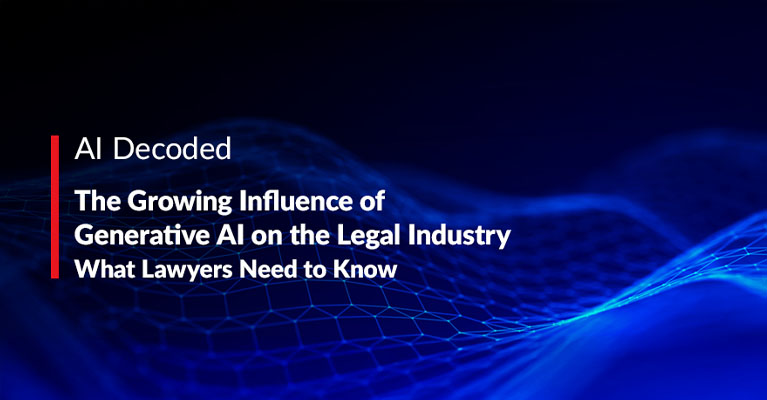
The Growing Influence of Generative AI on the Legal Industry: What Lawyers Need to Know
Few technologies have generated as much hype across the legal industry as Generative AI. Open AI’s ChatGPT, Google’s Bard, and a host of new solutions being developed on Large Language Models (LLMs) are making waves across the world. To put that into context, ChatGPT acquired 100 million users in a little over 2 months – making it the fastest growing consumer software application ever. To put ChatGPT’s success into perspective...

Overview of Enterprise Bargaining and BOOT changes in Secure Jobs, Better Pay Act
One of the biggest policy shifts in the Fair Work Legislation Amendment (Secure Jobs, Better Pay) Act 2022 (Cth) (Secure Jobs, Better Pay Act) was the change to the existing enterprise bargaining framework. As part of the policy drive to encourage enterprise bargaining, the Secure Jobs, Better Pay Act reduces barriers to multi-enterprise bargaining and expands the powers of the Fair Work Commission (FWC) to resolve bargaining...
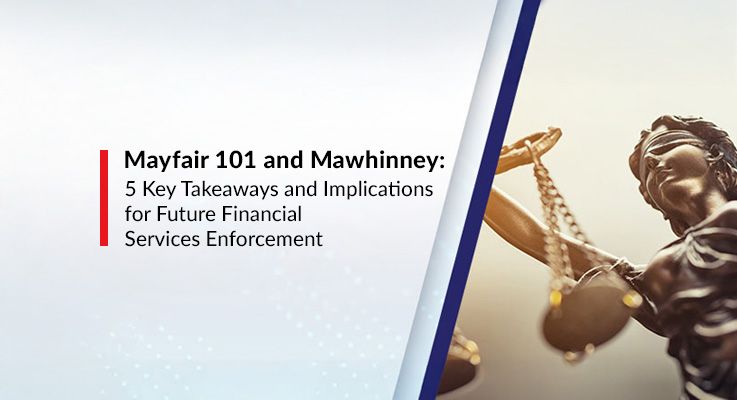
High Court rejects Mayfair and Mawhinney special leave applications
5 Key takeaways and implications for future financial services enforcement Introduction After a lengthy and hard-fought legal battle, the High Court has rejected the Mayfair 101 group of companies and their director James Mawhinney’s special leave applications. What can financial services licensees and their directors learn from the Mayfair 101/Mawhinney saga? How could this impact ASIC’s tactics in initiating future...

Privacy risks from artificial intelligence and machine learning models — what do lawyers need to know?
In this article from the December 2022 edition of the Privacy Law Bulletin expert author Dr Jonathon Cohen discusses Australia's rapidly changing privacy law framework. He also argues that lawyers and their clients would benefit from more clarity around the extent to which amendments to the Privacy Act might impact corporate governance requirements. Subscribers can access the full bulletin HERE . It covers three main...
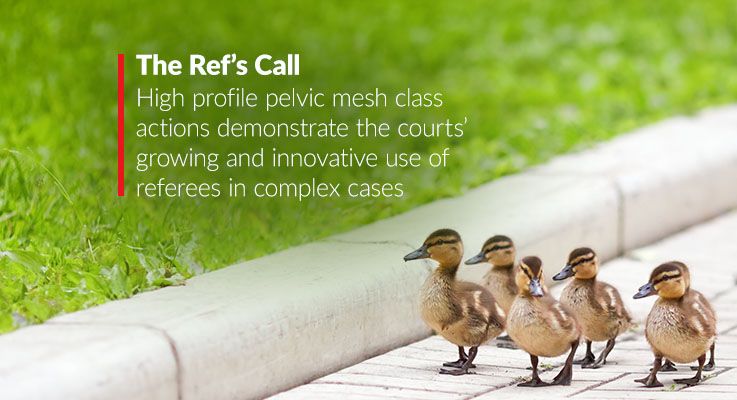
The Ref’s Call: Pelvic mesh class actions demonstrate the courts’ growing and innovative use of referees in complex cases
By Simone Michel (Legal Writer – Practical Guidance Dispute Resolution) and Michael Kontoudis (Senior Legal Writer – Practical Guidance Dispute Resolution) Recent decisions of the Federal Court in high-profile class actions highlight the emerging trend for the courts to appoint referees in novel and innovative ways in a broad range of complex commercial matters, from the determination of liability and damages to the...

The Internet’s “bizarre” bazaar: ACCC enforcement on digital marketplaces
This article comes from the experts behind the Internet Law Bulletin which covers a range of legal issues posed by the Internet and online services: issues as diverse as copyright, defamation, online dispute resolution, privacy, trade practices and criminal law. Subscribers to Practical Guidance can access the full bulletin HERE . Key tips for lawyers advising companies with digital platforms The Australian...

Company directors’ responsibility for board sign-off of financial statements | Financial reporting
Signing-off on financial statements is one of the key responsibilities discharged by company directors under the Corporations Act 2001 (Cth). The Corporations Act requires disclosing entities, public companies, large proprietary companies registered managed investment schemes and sub-funds of corporate collective investment vehicles (CCIVs) to prepare and lodge audited annual (and, in some cases, half-yearly): financial...
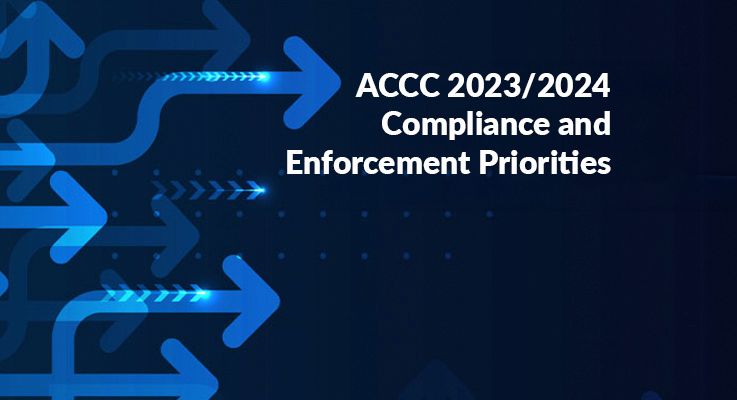
ACCC 2023/2024 Compliance and Enforcement Priorities
On 7 March 2023, the Chair of the Australian Competition and Consumer Commission (ACCC), Gina Cass-Gottlieb, announced the ACCC’s 2023/2024 enforcement and compliance priorities and confirmed its enduring priorities. The priorities span across both competition and consumer law, with many arising from the cost-of-living crisis. READ KEY TAKEAWAYS Subscribe to our Newsletter
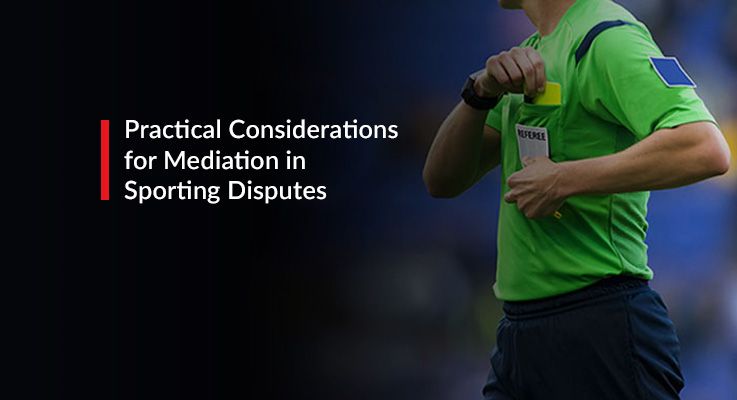
Practical Considerations for Mediation in Sporting Disputes
In 1962, during the Cuban missile crisis, then Chairman of the Council of Ministers of the Soviet Union, Nikita Khrushchev, wrote to the President of the United States of America, John Kennedy the following words: Mr President, Mr Kennedy, you and I are like two men pulling on a rope with a knot in the middle, the harder we pull, the tighter the knot until it will have to be cut with a sword. Now why don’t we both...